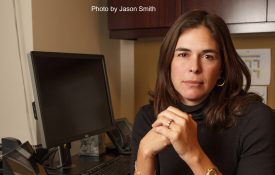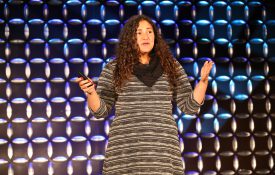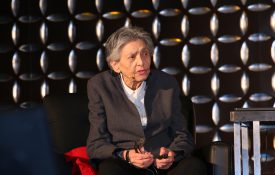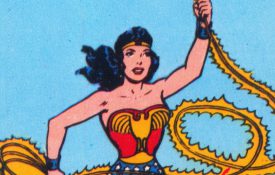-

Beilock Named President of Barnard College
APS Fellow Sian L. Beilock, an award-winning scientist who has extensively researched people’s performance under pressure, has been named President of Barnard College effective July 1.
-

Laurie Santos on What Makes the Human Mind So Special
Psychological scientist Laurie R. Santos of Yale University says that her cognitive experiments with monkeys and dogs suggests that humans’ unique ability to understand others’ mental states can, in many cases, actually cause us to confuse that thinking with our own. See her complete presentation at the 29th APS Annual Convention in Boston.
-

Lila Gleitman on Language Evolution
In the Fred A. Kavli Keynote Address at the 29th APS Annual Convention, APS Fellow Lila R.Gleitman shared her six decades of theoretical and empirical work on the remarkably sophisticated way that children acquire language. See the complete presentation.
-
Dunnette Prize Open for Submissions
The Dunnette Prize, named after the late Marvin D. Dunnette, is given to honor living individuals whose work has significantly expanded knowledge of the casual significance of individual differences through advanced research, development, and/or application. The prize was established to recognize individuals who have made significant and lasting contributions to understanding (assessing, predicting, and explaining) human behavior and performance by explicating the role played by individual difference. Such contributions can be in the form of basic research, applied research, or applications in practice.
-

NIH Postdoctoral Research Fellowship Opportunity
The University of Vermont’s Center on Behavior and Health (VCBH) announces NIH postdoctoral research fellowship opportunities in our internationally recognized center of excellence for the study of substance abuse. Applicants must have completed their training
-

Wonder Woman’s Secret Roots in Psychological Science
Wonder Woman was first showcased in a 1941 issue of All-Star Comics, but her origins can be traced back to a psychophysiology lab started by William James.

